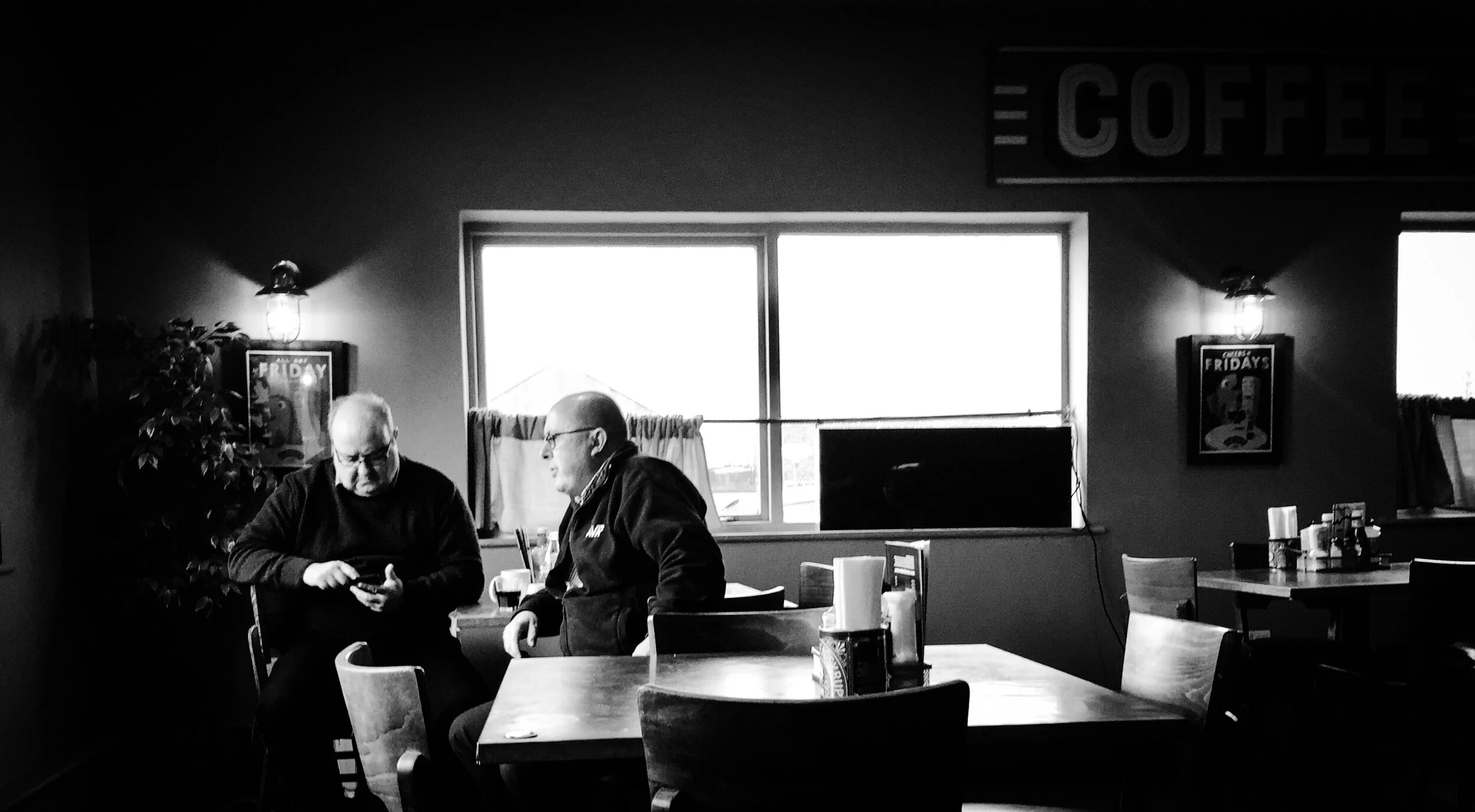Communion
Café: iPhone
“The universe is a communion of subjects, not a collection of objects.”
(Thomas Berry)
No rush.
These guys seemed to have time to spend together. They said ‘Hello’ and made small talk before settling into their conversation; a brief moment of communion together.
But I had no time for talk. I was in a hurry… and needed to be somewhere else.
Our endemic sense of hurry and busyness is founded in an economic system based on growth, status and individuality. We constantly ask for greater efficiency and effectiveness; more needs to be done in the same amount of time.
In the face of such impossible, irrational demands, expertise and competency can provide refuge; we know who we are, we know what we are doing, we are valued, rewarded and recognised. ‘Busy’ means we are needed and we are important.
Joanna Macy tells us that ‘busy’ narrows our field of vision, the past becomes irrelevant and the future too abstract. We ignore long term costs in favour of short-term benefits and, as we push risk into the future, we fail to see disasters coming our way. We know that energy reserves are limited, yet any action to slow down our carbon-based economy is met with resistance, we know that climate change is becoming increasingly dangerous and, even as millions take to the streets in protest, we find their actions inconvenient.
Anyway, we can’t join the protests. We are too busy.
‘Busy’ means that we don’t gather with friends; we don’t spend time just ‘hanging out’, can’t make that meal together, don’t go out or adventure. Instead, there is work to be done.
And, so, after a while, friends stop asking.
We can all enjoy moments of stress and excitement; they make life fun and provide us with stories to tell. But when ‘busy’ is the default and stress is chronic we become socially isolated and eventually fall ill.
As we address the critically difficult social, political and environmental issues we face, there is no time for ‘busy’. We need to make time for each other and develop new ways of working and being together. We need a sense of community that takes us beyond just a shared location and towards a sense of common endeavour and shared cause.
Being included in a community means that we belong, we develop meaning and share the future together
In communion, we learn who we are.
Notes:
Joanna Macy’s ‘Active Hope’ shows us ‘how to face the mess we’re in without going crazy.’ Joanna encourages us to honour the pain and grieving caused by social and environmental decay as a first step towards taking action. She reframes action, stepping away from grand gestures towards simple acts which make a small difference while helping us to understand the power of working together.
In the face of an economic mindset that progressively dismantles any sense of the collective in favour of solo work in the gig economy, Etienne Wenger’s ‘Communities of Practice’ shows us how human capability, problem solving capacity and creativity are embedded in social practice. Learning, he says, is social, collective and so much of what is provided by our educational institutions, dependent as they are on conventional ‘teaching’, is irrelevant.















